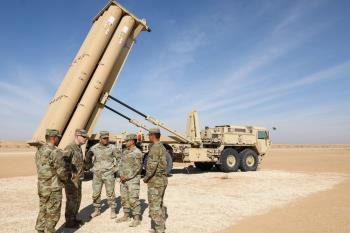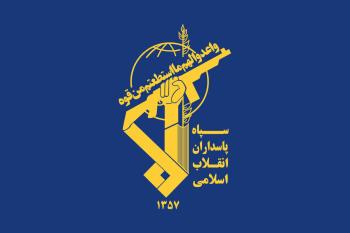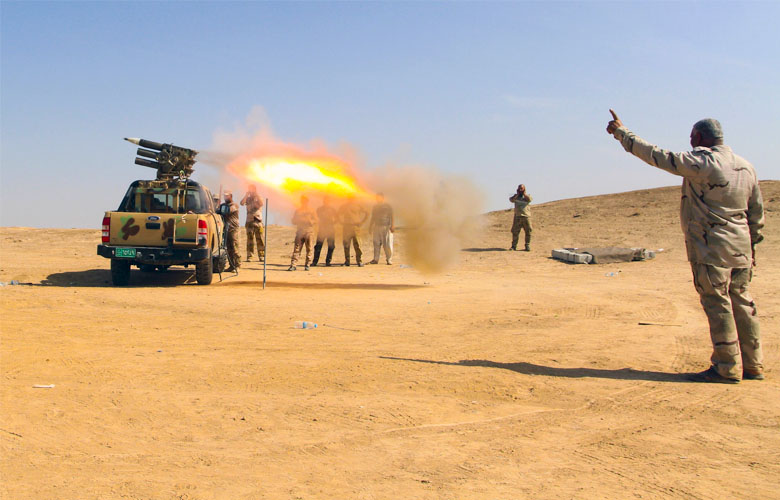Alwaght- A video showing a convoy of rocket launcher systems being deployed to the front lines near the Iraqi city of Fallujah has been uploaded to a YouTube account linked to Kata’ib Hezbollah or Hezbollah Brigades. The shots showed resolved fighters heading to battle as yellow flags fluttered in the breeze and their readiness to return home either victorious or martyred seemed not to waver.
Hezbollah Brigades is one faction in Iraq’s Popular Mobilization Forces that was formed following the ISIS expansion bid and the subsequent fall of Mosul in June 2014. Since then the PMF have been putting up a fight. Now it appears they are eyeing the militant-infested city of Fallujah in the Anbar province for their next decisive battle.
Reports have said that fighters from the Popular Mobilization Forces have been deployed to the surroundings of the city and are ready to strike.
The PMF have proven their competence in the battlefield. Comprised of various parties in addition to thousands of volunteers who were trained following the ISIS occupation of Mosul, these forces have shown the stamina to confront the terrorist threat, not just on their doorstep but well inside their homeland.
They have taken part in major operations against ISIS, most prominently the Second Battle of Tikrit where they proved their military aptitude. Joining hands with other forces in the operation, the PMF played a major role in the largest anti-ISIS offensive involving some 20,000 fighters up until March 2015.
Many believe that the Popular Mobilization Forces have a crucial part to play in the coming stage. They are believed to be capable of bringing about the end of ISIS presence in Iraq.
Now as they encircle Fallujah, one of the ISIS's most important strongholds in the country, they seem prepared to launch an all-out attack that aims to liberate the city.
Notably, Fallujah was at the center of controversy during the US-led invasion of Iraq. In April 2004, the US military promised revenge to the Blackwater USA deaths after militants ambushed a convoy containing four American private contractors. The result was the First Battle of Fallujah which proved to be a failure involving US withdrawal, a handing over of operations to the Fallujah Brigade, and a subsequent turning over of US weapons to militants, prompting the Second Battle of Fallujah.
In early 2014, the government lost control over the city to ISIS.
If they succeed in liberating it, the event would speak volumes about their potential. But more importantly, it can pave the way to Mosul’s liberation. Recently, the Popular Mobilization Forces announced they would be joining government forces preparing for an offensive against ISIS in Mosul.
A spokesman for Asaib Ahl al-Haq, one of the PMF’s most powerful factions, made the announcement.
“We think the battle to liberate Mosul will be huge, complex; it will be about guerrilla warfare in built-up areas, which only PMF fighters are good at…, as forces may be fighting house to house, room to room,” said Jawad al-Talabawi.
The army by itself cannot endure such a large-scale attack without more ground support.
However, Prime Minister Haidar al-Abadi’s government has shown some opposition to the PMF’s participation.
Iraq’s Parliament Speaker Salim al-Jabouri claimed the PMF’s participation would lead to sectarian bloodshed under the claim that the resistance block is primarily comprised of Shiite fighters and Mosul is Sunni-dominated.
Abadi himself had shown that he preferred that the people of Mosul take on the task of liberating themselves from ISIS to avoid the involvement of the Popular Mobilization Forces before he retracted the rejection and approved the enlisting of 40,000 Sunni fighters to the PMF.
It seems that these excuses have been largely influenced by a US plan to prevent a change in Iraq’s current status and ultimately progress into a strong independent state. Some claim Abadi has been under pressure to disrupt or delay the operation.
Regardless, what matters for the time being is Fallujah because it can be the way to reach the so-called capital of ISIS in Iraq. But after two years, this does not mean that the way to Mosul will be a smooth road.



























